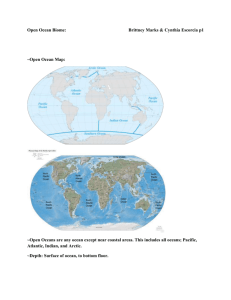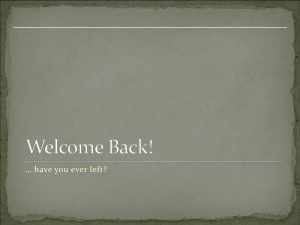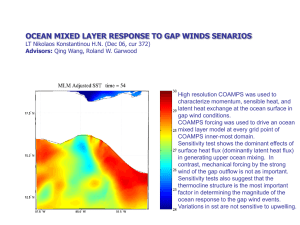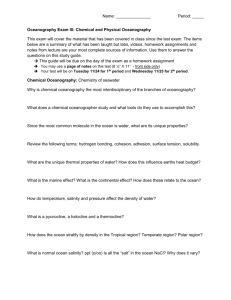Zellers Oceanography Syllabus
advertisement
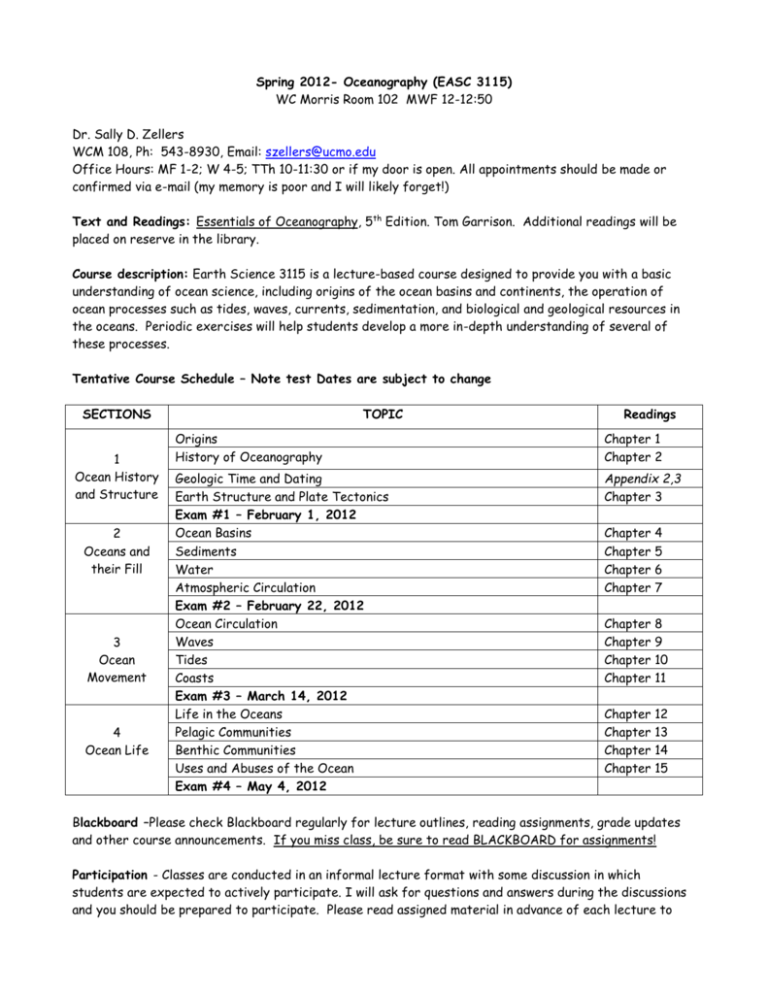
Spring 2012- Oceanography (EASC 3115) WC Morris Room 102 MWF 12-12:50 Dr. Sally D. Zellers WCM 108, Ph: 543-8930, Email: szellers@ucmo.edu Office Hours: MF 1-2; W 4-5; TTh 10-11:30 or if my door is open. All appointments should be made or confirmed via e-mail (my memory is poor and I will likely forget!) Text and Readings: Essentials of Oceanography, 5th Edition. Tom Garrison. Additional readings will be placed on reserve in the library. Course description: Earth Science 3115 is a lecture-based course designed to provide you with a basic understanding of ocean science, including origins of the ocean basins and continents, the operation of ocean processes such as tides, waves, currents, sedimentation, and biological and geological resources in the oceans. Periodic exercises will help students develop a more in-depth understanding of several of these processes. Tentative Course Schedule – Note test Dates are subject to change SECTIONS 1 Ocean History and Structure 2 Oceans and their Fill 3 Ocean Movement 4 Ocean Life TOPIC Readings Origins History of Oceanography Chapter 1 Chapter 2 Geologic Time and Dating Earth Structure and Plate Tectonics Exam #1 – February 1, 2012 Ocean Basins Sediments Water Atmospheric Circulation Exam #2 – February 22, 2012 Ocean Circulation Waves Tides Coasts Exam #3 – March 14, 2012 Life in the Oceans Pelagic Communities Benthic Communities Uses and Abuses of the Ocean Exam #4 – May 4, 2012 Appendix 2,3 Chapter 3 Chapter Chapter Chapter Chapter 4 5 6 7 Chapter Chapter Chapter Chapter 8 9 10 11 Chapter Chapter Chapter Chapter 12 13 14 15 Blackboard –Please check Blackboard regularly for lecture outlines, reading assignments, grade updates and other course announcements. If you miss class, be sure to read BLACKBOARD for assignments! Participation - Classes are conducted in an informal lecture format with some discussion in which students are expected to actively participate. I will ask for questions and answers during the discussions and you should be prepared to participate. Please read assigned material in advance of each lecture to enable such discussions. If you are not in class, you cannot participate. In class points cannot be made up! Late Work and Makeups: I will not accept late assignments after I have passed graded assignments back. In the case of a missed exam, you must retake the exam before the next class period or take an ESSAY makeup exam within during the scheduled final exam time. You must present a valid written excuse for why you missed the exam. Grading: There are 4 exams, which consist of multiple choice, matching, short answer and short essay. 4 Exams 4 Article/Video Summaries (One per each section of course) Homework /Classwork/pop quizzes/Other Grade Cutoffs A 90-100% B 80-89.9% C 70-79.9% D 60-69.9% F 59.9% or less 400 pts 100 pts scaled to 100 pts NOTE: Please do not ask for extra credit, I will assign it if I feel that it is needed Extra Credit limited to 10 pts Academic Honesty - You are required to read and will be held accountable to the standards set out in UCM's policies and procedures on academic honesty. Please review these in the course catalog or planner. For individual assignments (quizzes, tests, homework), you will, at best, share the grade if you share the work! Special Needs - Students with special needs should contact Dr. Barbara Mayfield in the Accessibility Office (-4421) and consult with me at their earliest convenience. Students for whom English is not a primary language should also see me soon. Course Goals: Gain a basic understanding of ocean science by learning the basic concepts in oceanography Understand, interpret, and describe to others physical processes that cause ocean circulation, waves, tides, distribution of marine life and physical and chemical processes affecting the world’s oceans. Recognize, understand, and interpret the terminology, symbols, and tools used by oceanographers. Develop a foundation for responding to national and international actions related to ocean resources Skills: Interpret and analyze charts, graphs, maps, tables Use of internet resources Create and Interpret graphs, use generalizations based on pattern recognition
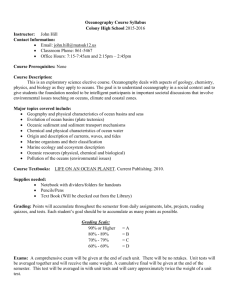
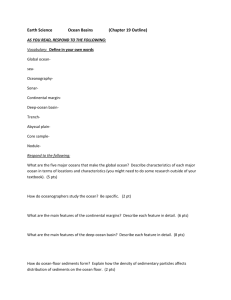

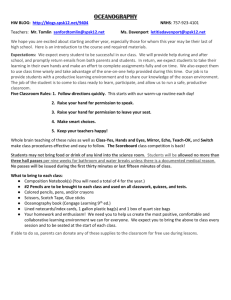
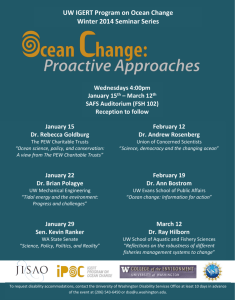
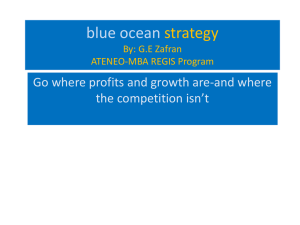
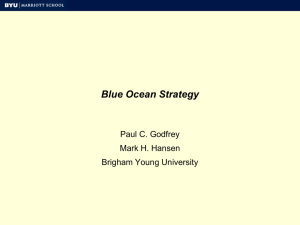
![Oceanography-course+outline06[1]](http://s3.studylib.net/store/data/007416797_1-b1b65c77f5b9d8fd5a84f25722890980-300x300.png)
